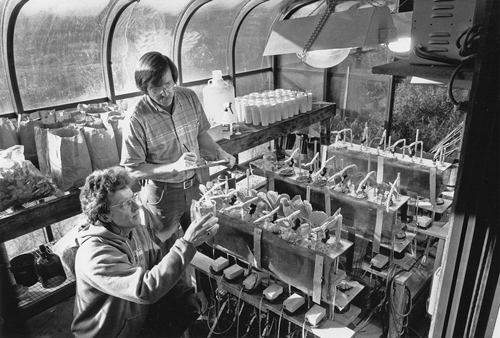Emeritus Faculty
Andrew Szasz
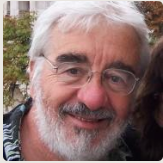
Selected publications:
Szasz, A., 2007. Shopping Our Way to Safety: How We Changed from Protecting the Environment to Protecting Ourselves, University of Minnesota Press.
Szasz, A. 1994. EcoPopulism: Toxic Waste and the Movement for Environmental Justice. Minneapolis: University of Minnesota Press.
“Is Green Consumption Part of the Solution?” pp. 594-608 in John S. Dryzek, Richard B. Norgaard, & David Schlosberg, eds., The Oxford Handbook of Climate Change and Society, Oxford University Press, 2011.
“Unintended, Inexorable: The Production of Environmental Inequalities in Santa Cruz County, California,” with Michael Meuser, American Behavioral Scientist, 43(4):602-632, 2000.
"Environmental Inequalities: Literature Review and Proposals for New Directions in Research and Theory," with Michael Meuser, Current Sociology, 45(3):99-120, 1997.
"Public Participation in the Cleanup of Contaminated Military Facilities: Democratization or Anticipatory Cooptation?" with Michael Meuser, International Journal of Contemporary Sociology, 34(1):1-22, 1997.
"Progress through Mischief: The Social Movement Alternative to Secondary Associations," Politics & Society, 20(4):521-528, 1992.
"In Praise of Policy Luddism: Strategic Lessons from the Hazardous Waste Wars," Capitalism, Nature, Socialism: A Journal of Socialist Ecology, 2(1):17-43, 1991.
Tim Duane
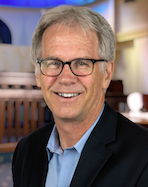 Tim Duane was on the UCSC faculty in Environmental Studies from 2009-2018, where he taught undergraduate courses on Environmental Law & Policy and Energy Politics & Policy as well as core courses in the PhD program. Tim came to UCSC after serving 18 years on the UC-Berkeley faculty from 1991-2009, where he was in the Energy and Resources Group (ERG), Department of City and Regional Planning, and Department of Landscape Architecture and Environmental Planning. Tim is now a Senior Fellow at the Wallace Stegner Center for Land, Resources, & the Environment at the S.J. Quinney College of Law at the University of Utah. He and his wife Amy now live on the Colorado Plateau in Flagstaff, Arizona.
Tim Duane was on the UCSC faculty in Environmental Studies from 2009-2018, where he taught undergraduate courses on Environmental Law & Policy and Energy Politics & Policy as well as core courses in the PhD program. Tim came to UCSC after serving 18 years on the UC-Berkeley faculty from 1991-2009, where he was in the Energy and Resources Group (ERG), Department of City and Regional Planning, and Department of Landscape Architecture and Environmental Planning. Tim is now a Senior Fellow at the Wallace Stegner Center for Land, Resources, & the Environment at the S.J. Quinney College of Law at the University of Utah. He and his wife Amy now live on the Colorado Plateau in Flagstaff, Arizona.
Tim’s scholarship includes the book Shaping the Sierra: Nature, Culture, and Conflict in the Changing West (University of California, 1999), “Community Participation in Ecosystem Management” (Ecology Law Quarterly, 1997), and “Regulation’s Rationale: Learning from the California Energy Crisis” (Yale Journal on Regulation, 2002). His recent articles have primarily been in law reviews, but he published in a wide range of journals over his career: Ecological Economics, Conservation Biology, Water Policy, the Journal of Environmental Planning and Management, Landscape and Urban Planning, Landscape Journal, Ecosphere, and California Policy Choices. According to Google Scholar, his work has been cited nearly 1000 times.
Tim was also a Special Consultant to the Sierra Nevada Ecosystem Project (SNEP), served as a member of the California Spotted Owl Federal Advisory Committee, and was on the boards of directors of Skyfuel, Inc., Common Ground Communities, and the Marin Conservation League. His primary “jobs” in “retirement” include photography (www.timduanephotography.com), music (Soundcloud and Bandcamp), and writing screenplays.
Margaret Fitzsimmons
Research:
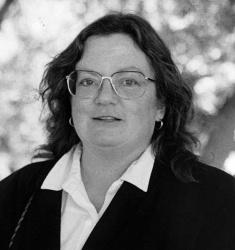
In 1994 she was recruited as a Professor to join the Department of Environmental Studies at the University of California, Santa Cruz, where she continued her deep dedication to student mentoring and teaching, her thoughtful support of her colleagues, and her commitment to a sustainable and socially just agriculture. Margaret was articulate, widely read, passionate about social and environmental justice, incisive, and incredibly kind. She was sought after for the role of discussant at national meetings of social scientists and geographers. Some of her breadth of knowledge was derived from and inspired by her beloved grandfather, long-standing UC Berkeley geographer Carl O. Sauer, who was well-versed in ecological and botanical knowledge. Her approach to agricultural studies combined modes of thought and knowledge spanning from political ecology to environmental history to ecosystem processes. Thus, she became a strong bridge between natural and social scientists in the department and an asset to the development of interdisciplinary research by our faculty and graduate students on sustainable food systems. Margaret continued to collaborate with, mentor and support students and colleagues after her retirement, including hosting dinners for new faculty engaged in food studies. Her last publication entitled, ‘Pest management within the environment: challenges for agronomists, ecologists, economists and policy makers,’ was a collaborative study with two agroecologists, of social factors driving pest pressure and pest control options in Pajaro Valley strawberry production over the last 100 years.
Steven R. Gliessman
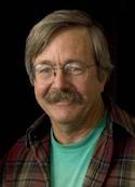 Research: Agroecology/Natural History; Agroecology, sustainable agriculture, tropical agriculture, ecology, natural history, California vegetation; Stephen Gliessman's research is carried out within the framework of ecological interactions in agroecosystems and the conversion of conventional food systems to sustainability, from the field to the table. Projects are in progress on the application of agroecological concepts to food system educational and extension programs around the world. His research stresses the inter-disciplinary interaction between culture and environment as reflected in our food systems. His most current work is connected to the non-profit Community Agroecology Network that partners with rural communities in Central America and Mexico to develop sustainable farming practices, enable food security and sovereignty, and create opportunities for young people within their communities so they become the leaders in local sustainability movements.
Research: Agroecology/Natural History; Agroecology, sustainable agriculture, tropical agriculture, ecology, natural history, California vegetation; Stephen Gliessman's research is carried out within the framework of ecological interactions in agroecosystems and the conversion of conventional food systems to sustainability, from the field to the table. Projects are in progress on the application of agroecological concepts to food system educational and extension programs around the world. His research stresses the inter-disciplinary interaction between culture and environment as reflected in our food systems. His most current work is connected to the non-profit Community Agroecology Network that partners with rural communities in Central America and Mexico to develop sustainable farming practices, enable food security and sovereignty, and create opportunities for young people within their communities so they become the leaders in local sustainability movements.
Selected Publications:
Gliessman, S. R. 2007. Agroecology: The Ecology of Sustainable Food Systems. 2nd Edition, CRC/Taylor&Francis Group, Boca Raton, FL.
Gliessman, S.R., and M.E. Rosemeyer. 2010. The Conversion to Sustainable Agriculture: Principles, Practices, and Processes. Series in Agroecology. CRC/Taylor&Francis Group, Boca Raton, FL.
Gliessman, S. R., M. R. Werner, S. L. Swezey, E. Caswell, J. Cochran, and F. Rosado-May. 1996. "Conversion to organic strawberry management changes ecological processes." California Agriculture 50:24Ð31.
Gliessman, S.R. 2008-Present, Editorials for each Issue of the Journal of Sustainable Agriculture, for which he is the Editor.
Gliessman, S. R. (ed.). 1990. Agroecology: Researching the Ecological Basis for Sustainable Agriculture. Ecological Studies Series no. 78. New York: Springer-Verlag.
David E. Goodman
Research: Rural and agro-food studies,development and political economy, and nature-society relations. David Goodman's research is informed by political economy, critical social theory, and an engagement with emerging literatures on nature-society relations.These interests currently are focused on agro-food networks, including consumption issues, the political ecology of North-South interactions, globalization and regionalism, and the metabolic relations of everyday life. These research themes complement past and continuing work on rural development in Brazil, global agro-food networks, and the technological reconfiguration of agricultural nature
Selected Publications:
Goodman, D., and M. I. FitzSimmons. Forthcoming. "Incorporating nature: Environmental narratives and the reproduction of food."
In N. Castree and B. Wilhelms-Braun (eds.), The Production of Nature at the End of the Twentieth Century. London and New York: Routledge.
Goodman, D. 1997. "World-scale processes and agro-food systems: Critique and research needs."Review of International Political Economy 4(4).
Goodman, D., and R. B. Howarth. 1997. "International trade and sustainable development." In S. Kamieniecki, G. A. Gonzalez, and R. O. Vos (eds.), Flashpoint in Environmental Policymaking: Controversies in Achieving Sustainability. Albany: State University of New York Press, pp. 257-277.
Goodman, D., and M. Watts. 1997. "Global appetite, local metabolism: Nature, culture and industry in fin-de-siècle agro-food systems." Ch. 1 in D. Goodman and M. Watts (eds.), Globalizing Food: Agrarian Questions and Global Restructuring. London and New York: Routledge, pp. 1-32.
Goodman, D., and M. Watts (eds.). 1997. Globalizing Food: Agrarian Questions and Global Restructuring. London and New York: Routledge.Paul L. Niebanck
Deborah K. Letourneau
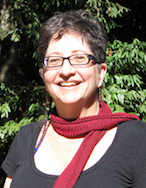 Research: Insect-plant interactions, biological control, trophic cascades, tropical ecology, community ecology in forests and agroecosystems, redwood forest food webs, landscape complexity and ecosystem services for pest control
Research: Insect-plant interactions, biological control, trophic cascades, tropical ecology, community ecology in forests and agroecosystems, redwood forest food webs, landscape complexity and ecosystem services for pest control
Selected Publications:
Letourneau, D.K., M. Fitzsimmons, and D. Nieto. 2016. Approaches in plant protection – science, technology, environment and society. Chapter 1, In Coll, M. and E. Wajnberg, Editors. Pest management within the environment: challenges for agronomists, ecologists, economists and policy makers [Peer Reviewed, Invited]
Barbosa, P., D. K. Letourneau, and A. Agrawal (Eds.). 2012 Insect Outbreaks Revisited. 400+ pp. John Wiley and Sons, New York, NY.
Letourneau, D. K. and S. G. Bothwell. 2008. Comparison of organic and conventional farms: challenging ecologists to make biodiversity functional. Frontiers in Ecology and the Environment 6:430-438. [Peer Reviewed, Invited]
Letourneau, D. K., 2004. Mutualism, anti-herbivore defense, and trophic cascades: Piper ant-plants as a mesocosm for experimentation, Ch. 2 IN L.A. Dyer and A. Palmer (Eds.) Piper: A Model Genus for the Studies of Phytochemistry, Ecology and Evolution, Kluwer/Plenum Academic Publishing, New York, NY [Peer Reviewed, Invited]
Letourneau, D. K. and L. A. Dyer, 2004. Multi-trophic interactions and biodiversity: beetles, ants, caterpillars and plants Ch. 12 IN D. Burslem, M. Pinard, and S. Hartley (Eds.) Biotic Interactions in the Tropics, Cambridge University Press, New York, NY [Peer Reviewed, Invited]
Letourneau, D.K. and B. E. Burrows (Eds.). 2002. Genetically Engineered Organisms: Assessing Environmental and Human Health Effects. CRC Press, Boca Raton, FL. [Peer Reviewed]
Letourneau, D. K. and D. A. Andow (Eds.). 1999. Natural Enemy Food Webs. Ecological Applications 9(2):363-415. [Invited, Juried]
Letourneau, D. K. and P. Siaguru. 1997. Endospermum labios Schodde. IN I.Faridah Hanum and L.J.G Van der Maesen (Eds.). Plant Resources in South East Asia, Auxiliary Plants in Agriculture and Forestry, Vol. 11[Peer Reviewed, Invited]
Letourneau, D. K., 1991. Parasitism of ant-plant mutualism and the novel case of Piper 390-396 IN C. M. Huxley and D. F. Cutter (Eds.) Ant-Plant Interactions, Oxford University Press, New York, NY [Peer Reviewed, Invited]
Letourneau D. K., 1990. Two examples of natural enemy augmentation: A consequence of crop diversification Pp. 11-29 IN S.R. Gliessman (Ed.) Agroecology: Researching the Ecological Basis of Sustainable Agriculture, Springer-Verlag, New York, NY [Peer Reviewed, Invited]
Environmental Interactions Lab
Research: Environmental economics, environmental and natural resource economics, economics of sustainable development, political economy of water, and the interaction of environmental problems and political conflict.
Selected Publications:
Currents Article: New Global Policy Brief web site gets crucial information out quickly2003 Socio-Economic Roots of Radicalism? Towards Explaining the Appeal of Islamic Radicals. Carlisle, PA: Stategic Studies Institute of the U.S. Army War College (July)
2002 Coping with Water Scarcity: The Governance Challenge. San Diego: Institute on Global Conflict and Cooperation of the University of California, Policy Paper #54 (November)
1996 A Political Economy of the Middle East (with John Waterbury). Boulder and London: Westview Press, Second Edition.
2003 Modernity and Economic Development: The New‚ American Messianism Middle East Policy, Vol 10, Number 3 (Fall, 2003), pp. 56-78.
2002 On Transition from Authoritarian Rule and the Democratic Potential of Arab Regimes. Newsletter of the Economic Research Forum for the Arab Countries, Iran, & Turkey. Cairo: The World Bank, Volume 9, No 2, pp. 12-13.
2002 Inter-state Water Disputes in India: Institutions and Policies (co-authored with Nirvikar Singh), International Journal of Water Resources Development 18, 4 , 615-629, (October).
2002 Socio-Economic Roots of Radicalism, Naval War College Review, LV, 4 (Autumn). [peer reviewed]
2001 At War with Utopian Fanatics, Middle East Policy, VIII, 4 (December), 5-9.
2001 No Easy Exit: Property Rights, Markets and Negotiations over Water, co-authored with Nirvikar Singh, Water Resources Development, 17, 3 July,409-425. [peer reviewed]
Research: Environmental politics and policy, with a focus on the U.S.; land preservation, water quality regulation and management, industrial ecology, policy analysis.
Selected Publications:
Carlisle, L, de Wit, MM, DeLonge, MS, Calo, A, Getz, C, Ory, J, Munden-Dixon, K, Galt, R, Melone, B, Knox, R, Iles, A and Press, D. 2019. Securing the future of US agriculture: The case for investing in new entry sustainable farmers. Elem Sci Anth, 7: 17. DOI: https://doi.org/10.1525/elementa.356
American Environmental Policy: The Failures of Compliance, Abatement and Mitigation. Cheltenham, UK: Edward Elgar, Inc., 2015.
Brian M. Dowd, Daniel Press and Marc Los Huertos. "Agricultural Nonpoint Source Water Pollution Policy: the Case of California's Central Coast." Agriculture, Ecosystems and Environment, Volume 128, no. 3, November 2008, Pages 151-161.
“Industry, Environmental Policy and Environmental Outcomes.” Annual Review of Environment and Resources, Vol. 32, 2007.
Saving Open Space: The Politics of Local Preservation in California, Berkeley, CA: UC Press, 2002.
Democratic Dilemmas in the Age of Ecology: Trees and Toxics in the American West, Durham, NC: Duke University Press, 1994.
Foundational Faculty
Raymond F. Dasmann
Raymond F. Dasmann was a field biologist who helped shape the modern environmental movement with more than a dozen books. He promoted the idea of ''ecodevelopment,'' in which a community's growth is not dependent on exploiting its natural resources, and he insisted that indigenous people have a central role in ecological solutions. Dr. Dasmann began emphasizing the need for environmental conservation in the 1950's, and his 1965 book, ''The Destruction of California,'' became a staple of ecology courses in universities in the 1970's. ''Environmental Conservation'' (1959) remains in print. In 1966, he became an ecologist for the Conservation Foundation in Washington, and in 1970, he joined the International Union for Conservation of Nature in Switzerland. Dr. Dasmann began teaching ecology at University of California at Santa Cruz in 1977, staying here until his retirement in 1989.
Bryan H. Farrell
Bryan Farrell was brought to UCSC to start a Center for South Pacific Studies and served as its director. During his time on campus, he also served as the chair for the Environmental Studies department. Bryan was a scholar of the first order, and far ahead of his time. Among his contributions was a thorough understanding of the environmental consequences of the tourism phenomenon. In the modest and thoroughgoing manner that characterized all of his scholarship, Bryan explored and elaborated on what has now become a huge, dynamic, and mostly negative force, the immediate impacts and long-term consequences of which are still being researched and discussed. His on-the-ground knowledge allowed him to make a strong impact on the environments of Hawaii and the South Pacific, such as the marine preserve at Honolua Bay. He was active in connecting his students with local researchers and officials who could help them achieve results, and they did.
 Recruited by the visionary geographer Richard [Dick] Cooley to join the new environmental studies program at UCSC, Pepper arrived in Santa Cruz in 1972. This oral history is part of the Regional History Project's VERIP series with professors who retired in the early 1990s. In these two interviews conducted by former Regional History director Randall Jarrell and current director Irene Reti, Jim Pepper describes UCSC's environmental studies program as one that “had both a theoretical dimension to it and an applied dimension, a program . . . that integrated theory and practice.” Pepper brought to this nascent department his practical experience and background as a professional landscape architect and planner, as well as his probing interest in the philosophical and ethical questions at the heart of environmental issues. Between 1972 and his retirement in 1994, Jim Pepper helped to build a flagship program in environmental studies at UCSC. Outside of academia, Jim Pepper has enjoyed a 45-year distinguished career in environmental planning, site planning, and urban design. His projects included the formulation of an earthquake recovery plan for downtown Santa Cruz after the Loma Prieta Earthquake of 1989.
Recruited by the visionary geographer Richard [Dick] Cooley to join the new environmental studies program at UCSC, Pepper arrived in Santa Cruz in 1972. This oral history is part of the Regional History Project's VERIP series with professors who retired in the early 1990s. In these two interviews conducted by former Regional History director Randall Jarrell and current director Irene Reti, Jim Pepper describes UCSC's environmental studies program as one that “had both a theoretical dimension to it and an applied dimension, a program . . . that integrated theory and practice.” Pepper brought to this nascent department his practical experience and background as a professional landscape architect and planner, as well as his probing interest in the philosophical and ethical questions at the heart of environmental issues. Between 1972 and his retirement in 1994, Jim Pepper helped to build a flagship program in environmental studies at UCSC. Outside of academia, Jim Pepper has enjoyed a 45-year distinguished career in environmental planning, site planning, and urban design. His projects included the formulation of an earthquake recovery plan for downtown Santa Cruz after the Loma Prieta Earthquake of 1989.
More on Jim Pepper and the evolution of the UCSC Department of Environmental Studies
 Research: Biology, conservation biology, and the social and policy context of conservation. He is also interested in population and evolutionary biology, fluctuating asymmetry, population genetics, island biogeography, environmental studies, biodiversity policy, nature conservation, and ethics. After retiring, he continued to research ecosystem regulation by strongly interactive (keystone) species, and he wrote a book about the origins and evolution of sin and how it can inform our understanding of human nature can guide conservation and related life-affirming movements.
Research: Biology, conservation biology, and the social and policy context of conservation. He is also interested in population and evolutionary biology, fluctuating asymmetry, population genetics, island biogeography, environmental studies, biodiversity policy, nature conservation, and ethics. After retiring, he continued to research ecosystem regulation by strongly interactive (keystone) species, and he wrote a book about the origins and evolution of sin and how it can inform our understanding of human nature can guide conservation and related life-affirming movements.
Michael Soulé passed away June 17, 2020, in Grand Junction, Colorado. To read more about his life and achievements, please visit this page.
2014. Collected Papers of Michael E. Soulé: Early Years in Modern Conservation Biology. Michael E. Soulé Island Press. Washington, D. C. and Covelo, CA.
